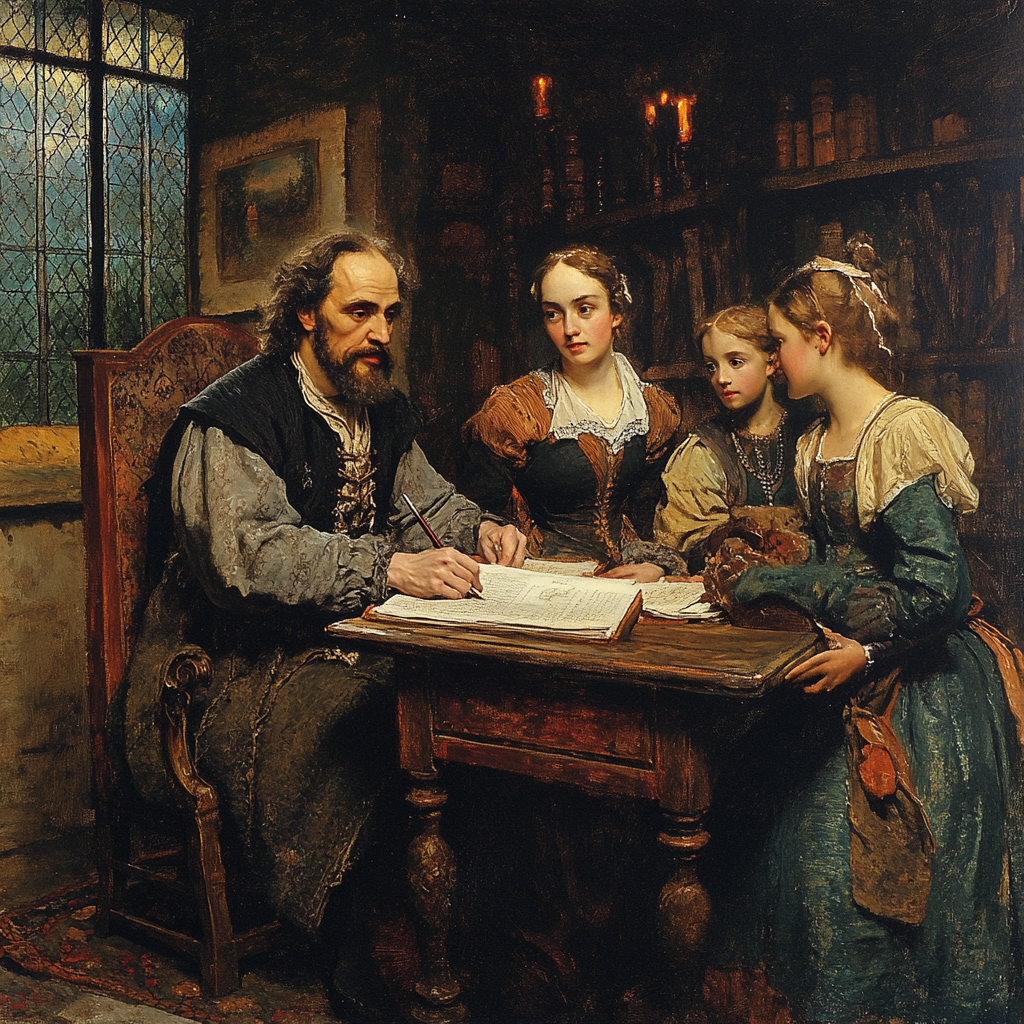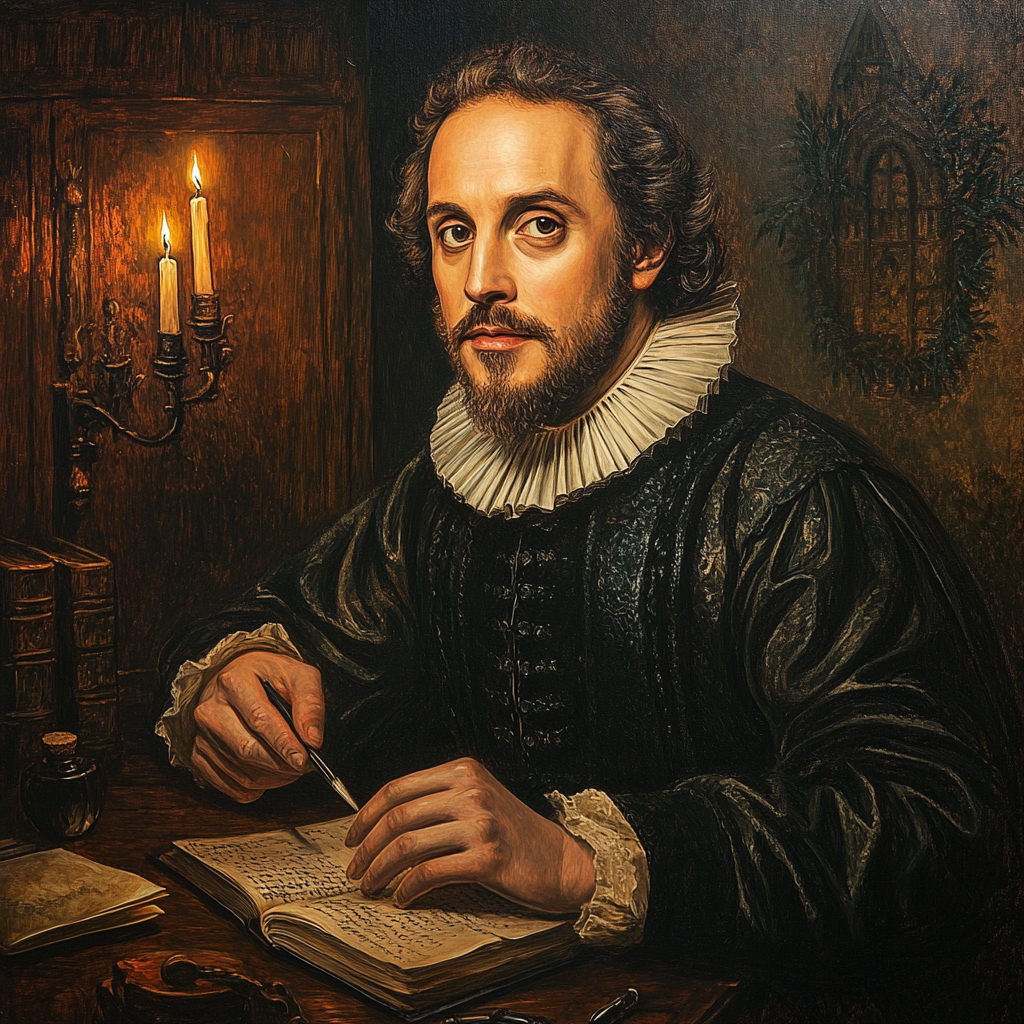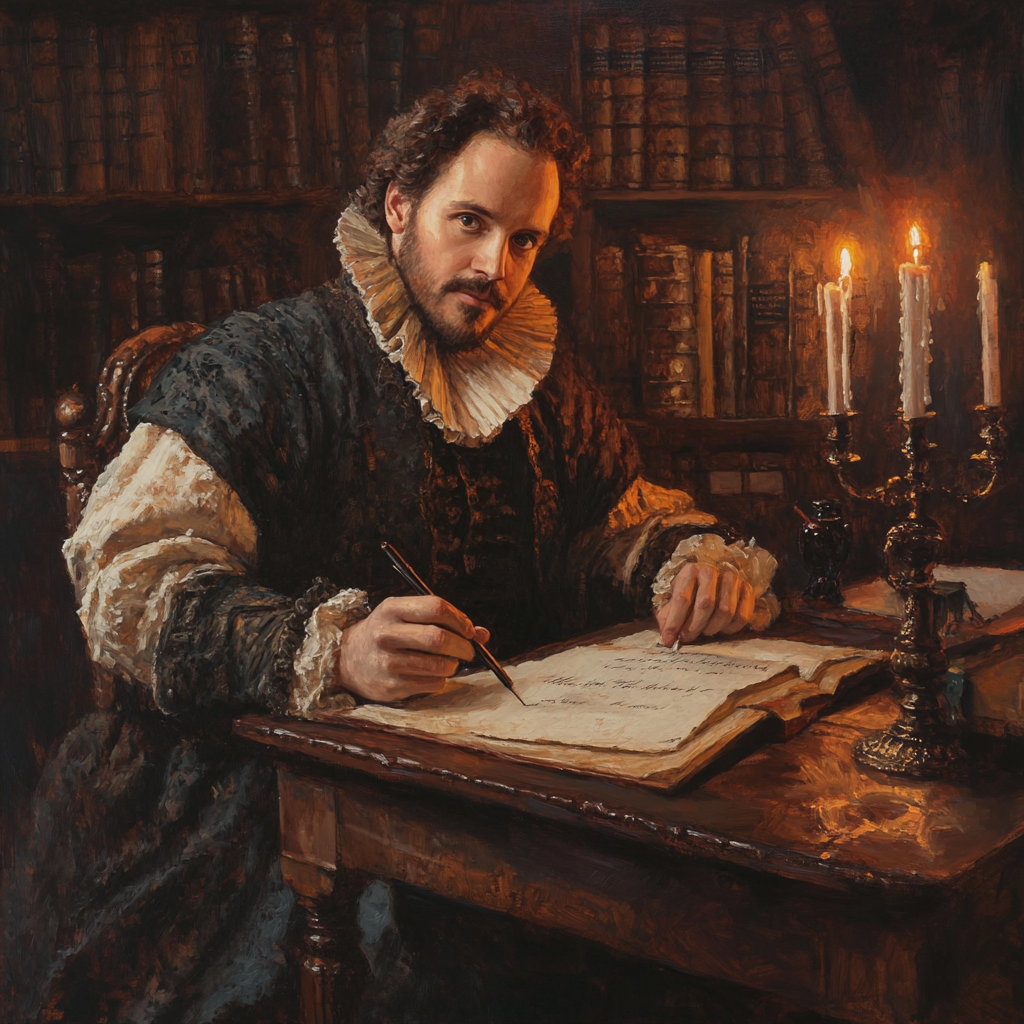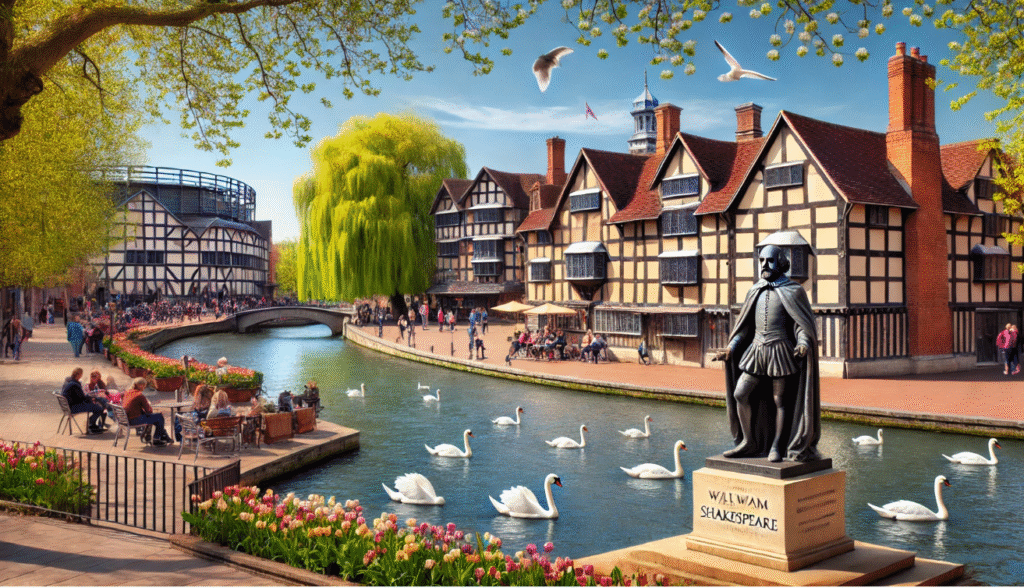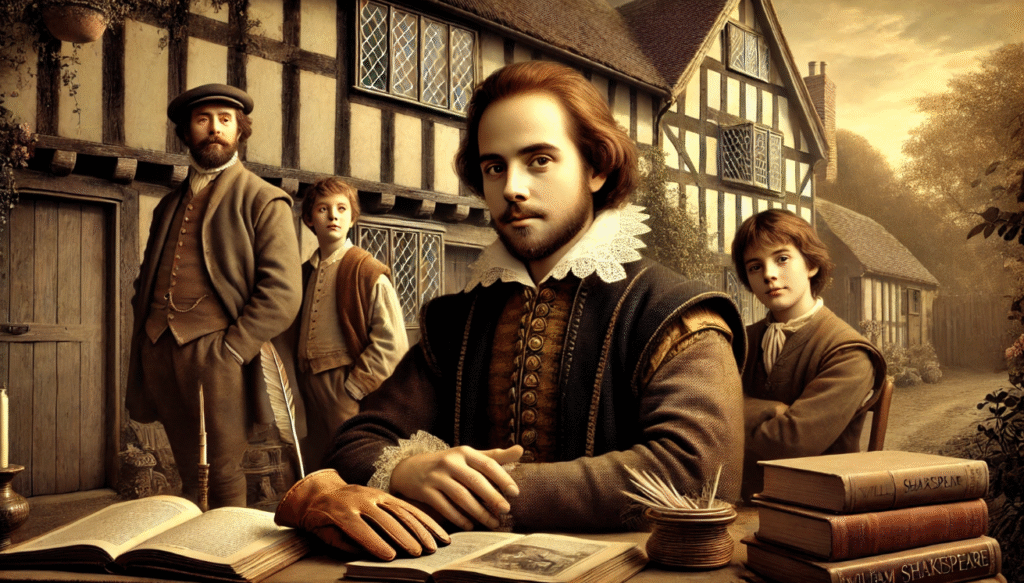Shakespeare’s career milestones , the renowned English playwright and poet, has had a profound global influence on literature and the arts. Born in Stratford-upon-Avon in 1564, Shakespeare’s humble beginnings did not hinder his rise to fame. His works, including plays such as “Hamlet,” “Macbeth,” and “Romeo and Juliet,” have been translated into numerous languages and continue to be performed and studied around the world. Exploring Shakespeare’s career milestones is essential to understanding his legacy because his contributions to the English language, storytelling, and human experience are unparalleled. His ability to capture the complexities of human emotion and society has transcended time and continues to resonate with audiences across cultures.
Early Life in Stratford-upon-Avon

William Shakespeare was born in 1564 in Stratford-upon-Avon, a small town in England. He came from a middle-class family, and his father was a successful glove-maker and local official. Shakespeare attended the local grammar school, where he was exposed to classical literature and the works of ancient writers such as Ovid and Plautus. This early education had a profound influence on his later work as a playwright and poet. Despite growing up in a small-town setting, Shakespeare showed early aspirations for a career in the arts. He was likely influenced by the traveling theater groups that performed in Stratford-upon-Avon, as well as by his exposure to literature at school.
The Move to London: The Start of His Theatrical Journey
William Shakespeare’s “Lost Years” refer to the period of time in the late 1580s to early 1590s where there is little to no documented information about his life. It is during this time that he is believed to have arrived in London and become involved in the theater scene. It is also during this time that he gained his first public recognition as an actor and playwright. This mysterious gap in his life has sparked much speculation and curiosity among historians and Shakespeare enthusiasts.

Breakthrough as a Playwright
In 1593, William Shakespeare published his narrative poems Venus and Adonis, followed by The Rape of Lucrece in 1594. These works were well-received and solidified his reputation as a talented writer. Additionally, his early plays such as Henry VI and Titus Andronicus also played a significant role in establishing his reputation in the London theater scene. Despite facing some criticism, these plays showcased Shakespeare’s skill in storytelling and contributed to his eventual success as a playwright.

Joining the Lord Chamberlain’s Men
Joining this theatrical company marked a turning point in his career because it allowed him to take on multiple roles that he was passionate about. As a playwright, he was able to showcase his writing talents and have his work brought to life on stage. Additionally, as an actor, he had the opportunity to showcase his performance skills and connect with audiences in a new way. Finally, becoming a shareholder in the company gave him a sense of ownership and allowed him to have a greater impact on the company’s direction and success. Overall, joining this theatrical company allowed him to explore and excel in various aspects of the theater industry, propelling his career to new heights.
During the Elizabethan era, William Shakespeare produced several key works that are still widely studied and performed today. Two of his most famous plays from this period are “Romeo and Juliet” and “A Midsummer Night’s Dream.” These works are considered masterpieces of English literature and have had a significant impact on the development of theater and storytelling. “Romeo and Juliet” is a tragic love story that explores themes of love, fate, and conflict, while “A Midsummer Night’s Dream” is a comedic play that delves into the complexities of love and the supernatural. Both of these plays showcase Shakespeare’s unparalleled skill in crafting compelling characters and timeless stories.
The Opening of the Globe Theatre

The Globe Theatre was constructed in 1599 in London during the reign of Queen Elizabeth I. It was built by the Lord Chamberlain’s Men, a company of actors that included William Shakespeare. The construction of the Globe Theatre was a significant moment in the history of theater, as it provided a permanent home for Shakespeare’s plays and other popular dramas of the time. Shakespeare was not only a playwright for the company, but also a shareholder in the Globe, making him an influential figure in its establishment. The theater became a central hub for entertainment in London and played a crucial role in shaping the development of English drama.
The Globe Theatre has been home to countless iconic plays, including some of William Shakespeare’s most famous works. Hamlet, a tragedy exploring themes of revenge and madness, has been a staple of the Globe’s repertoire. Julius Caesar, a historical drama examining power and betrayal, has also been a popular choice for performances at the Globe. Additionally, As You Like It, a beloved comedy featuring themes of love and identity, has been a crowd-pleaser at the Globe. These plays continue to captivate audiences with their timeless themes and enduring relevance.
Peak of Creative Mastery

The period between 1600-1610 was a rich and prolific time for literature, particularly in the field of drama. Some of the most enduring masterpieces were written during this time, including Macbeth, Othello, King Lear, and Twelfth Night. These works were all penned by the renowned playwright William Shakespeare and are considered some of the greatest achievements in English literature. Macbeth, written in 1606, is a powerful and tragic play that delves into themes of ambition, guilt, and the corrupting influence of power. Othello, also written in 1606, is a gripping exploration of jealousy, betrayal, and the destructive nature of prejudice.
Shakespeare’s evolution as a playwright during his time was marked by a significant shift in his writing style and thematic elements. In his early works, he focused on comedic and romantic themes, but as he matured, he delved into darker and more complex subjects such as power, ambition, and the human condition. These plays cemented his legacy by showcasing his unparalleled ability to capture the complexities of human emotion and experience. His profound understanding of language and character development, as well as his exploration of universal themes, have ensured that his works continue to be relevant and influential across generations. Shakespeare’s plays have left an indelible mark on the literary world and continue to be celebrated for their enduring impact on theater and storytelling.
Later Years and Final Works

It’s interesting to note that Shakespeare’s semi-retirement to Stratford-upon-Avon in his later years coincided with the writing of his last plays, including The Tempest and Henry VIII. These plays are often noted for their themes of resolution and closure, as if Shakespeare was reflecting on his own life and career. During this time, Shakespeare also continued to contribute to the King’s Men, the acting company he was associated with. It’s believed that he may have collaborated with other playwrights on some of his later works, further demonstrating his ongoing influence and impact on the theater world.
Shakespeare’s Legacy Beyond His Lifetime

The publication of the First Folio in 1623 was a significant event in preserving the works of William Shakespeare. It was the first collected edition of his plays, and without it, many of his works may have been lost to history. The First Folio also played a key role in shaping the way we understand and appreciate Shakespeare’s work, as it established a standard text for future generations. The influence of the First Folio on subsequent generations of playwrights, poets, and thinkers cannot be overstated. Shakespeare’s works have had a profound impact on literature and the arts, and the publication of the First Folio ensured that his plays and poems would continue to inspire and influence artists for centuries to come.
Shakespeare’s journey from Stratford to the Globe Theatre and beyond was a remarkable one. Born in Stratford-upon-Avon, he made his way to London where he found success as a playwright and actor. His work at the Globe Theatre, where many of his plays were performed, solidified his place in literary history. Shakespeare’s career milestones, including his iconic plays such as Romeo and Juliet, Hamlet, and Macbeth, continue to inspire writers and artists to this day. His ability to capture the human experience and delve into complex themes has left a lasting impact on literature and theater. I encourage readers to explore Shakespeare’s works and contributions further.








